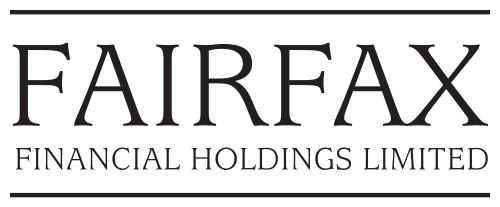Fairfax Financial Holdings Ltd. (TSX:FFH) announced December 19 that it was buying Switzerland-based insurance company Allied World Assurance Co Holdings, AG (NYSE:AWH) in a US$4.9 billion cash and stock deal.
Allied, which specializes in protecting the interests of Fortune 1000 companies through its casualty and professional liability insurance lines, which account for a majority of the company’s revenues, 59% of which are generated in North America.
For Fairfax, it’ll get a nice specialty insurer to add to its stable of insurance companies; Allied World will get the investment expertise of Prem Watsa, one of the Canada’s most respected investors, plus the financial firepower to grow its business.
On a proforma basis, Fairfax and Allied combined insurance operations have generated US$938 million in operating income through the nine months ended September 30, 2016.
Under the terms of the deal, Allied shareholders would own 27% of Fairfax after the acquisition is completed—10% if the US$2.7 billion in stock used for the deal is replaced by cash. Allied will operate independently as a decentralized company with its existing senior management team continuing to run the company.
If you didn’t consider Fairfax worth owning before this deal, you might want to change your mind because it closed trading December 16 down for the year and at levels seen but twice in the past 24 months.
Fool.ca contributor Joey Frenette wrote in November that he did not see a huge buying opportunity at that time, but further price declines might provide a more attractive entry point. At the time of his article, Fairfax shares were trading at $605; a month later, they’re around the same price.
Investors who believe that Fairfax is fairly valued fail to account for three things:
1. Fairfax aims to grow its book value per share by 15% annually. Since 1985 it has grown book value per share at 20.4%, although not in a straight line. The last year it grew book value per share by 20.4% or more was in 2009, when Fairfax increased that all-important number by 32.3%. By comparison, Berkshire Hathaway Inc. has averaged compound annual growth of 18.2% over the same 31-year period.
Yet Fairfax trades for 1.2 times book value per share compared to 1.5 for Berkshire Hathaway.
2. With the acquisition of Allied comes a US$9.4 billion investment portfolio. Since 1985 Fairfax has grown its investment portfolio at a compound annual growth rate of 26%. Thus, the Allied portfolio alone would be worth US$29.9 billion. Now, that might be a little overreaching given the bull run is likely to end with increasing interest rates, but even half that would put it at US$17.3 billion.
Since 1985 Prem Watsa’s investment portfolio has seen just three years of negative returns, or an average of 8.6% annually. Watsa might be good at finding interesting companies to buy, but his best strength is arguably his portfolio-management skills.
3. Fairfax continues to grow its non-insurance businesses, which include investments in restaurants and retail in Canada and the U.S., Fairfax India Holdings Corp. (TSX:FIH.U), Thomas Cook India, Pethealth pet insurance, and Boat Rocker Media.
In the first nine months of the year, Fairfax’s non-insurance businesses generated US$1.4 billion in revenue and US$101.9 million in pre-tax income before interest, year-over-year increases of 5.4% and 13.5%, respectively.
Like Berkshire Hathaway, over the next 31 years, Fairfax will generate more and more income from its non-insurance operations, notwithstanding the Allied acquisition.
Bottom line
I have no misgivings about buying Fairfax stock at current prices. And if its stock drops below $500, you should buy as much as you possibly can, because like Buffett, Watsa is better at investing than you, me, and most of the investing world.








